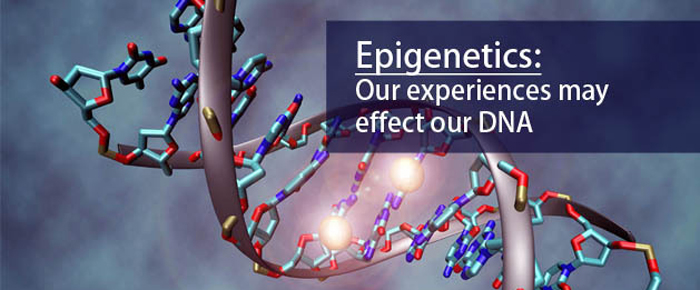
By Haddon Libby
The National Institute of Health estimates that the “C” word, cancer, costs the United States one-quarter of a TRILLION dollars annually. Nearly 600,000 or 25% of all American deaths will be attributable to cancer this year.
In addition to the foods you eat, the environment and your genetics, scientists have recently discovered that epigenetics play a role in your health and susceptibility to illness.
The easiest way to understand epigenetics is to think of your genetic coding as a DNA tree. Each branch of the DNA tree holds code to your health as well as the health of your offspring. On your tree, the branch attributable to your great-great-great grandfather shows that he was an avid smoker yet never suffered from cancer. Despite his good fortune, your risk to cancer will increase because of the external risks caused by his smoking that attached to your DNA tree like a vine. That is epigenetics. As such, it becomes ever more important for you to avoid potential risks that could trigger your epigenetics to affect your DNA tree and therein trigger a health event.
Knowing that the sins of our ancestors may affect our health, we have to do a couple of things to maintain our health as well as that of our offspring. First, we need to monitor our health closely as our ancestors were exposed to all sorts of carcinogens that we know today are not good for the human body. If you plan on having children, you need to remember that whatever you are exposed to or eat today may not hurt you but could cripple future generations.
To increase your chances of leading a healthy life, get exercise every day, maintain a healthy weight and eat wholesome real foods like fruits and vegetables. You also need to limit alcohol intake, never smoke and protect your skin from harmful UV rays with sunscreen. Failure to do all of these things will increase your risks of cancer significantly and may affect your future offspring.
We know genetically-modified organisms or GMOs and the chemicals used when growing GMOs can cause rapid tumor growth and may cause future generations to have reproductive problems and cancers. Given that there are no multi-generation tests of GMOs on humans yet rat tests have indicated serious worries, the safest thing to do is to avoid eating GMOs. This means that most boxed products on grocery store shelves that have corn or soy products should be avoided. To avoid most of these risks, simply eat organic.
When eating or drinking food, do not consume anything from a Styrofoam container as the styrene will pollute your food to some degree which can damage your DNA and increase your risk to cancer.
Consumer Reports showed how many brands of brown rice have the toxic metal arsenic in them which damages your DNA. Scientist Michael Hansen points out that once your DNA is damaged, “it can’t bounce back,”making you more susceptible to cancer.
As far as other specific foods to avoid, skip sodas and sweetened beverages, fried foods, burned meats, preserved, cured or picked meats, refined white flours and sugars, foods with artificial sweeteners, hydrogenated oils, canned tomatoes and farmed salmon. Farmed salmon often contains PCBs, flame retardants, pesticides and antibiotics.
Other things to avoid include the naphthalene or formaldehyde found in many deodorants and room fresheners; non-stick cookware; microwave popcorn; BPAs from plastic water bottles; processed meat due to sodium nitrate; non-organic dried fruit due to pesticides; any scented candle not made from beeswax; VOC or volatile organic compounds found in paint, many cosmetic products and triclosan which is found in some toothpastes.
If your laundry detergent includes ‘1.4-dioxane’, avoid it as has caused liver and nasal tumors in rats. In general, avoid anything with ‘oxynol or ‘eth’ in the ingredient name in food or cleaning products.












































